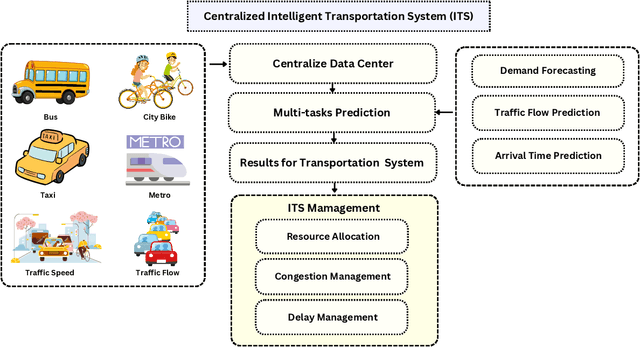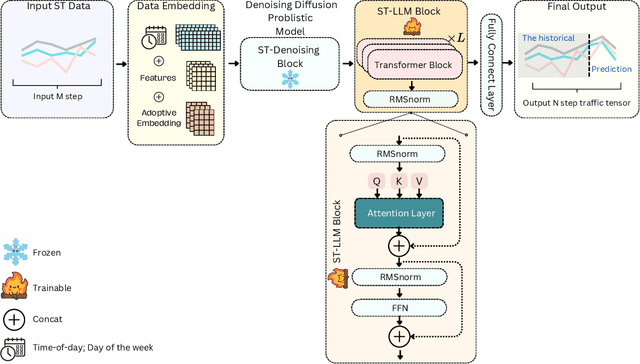STLLM-DF: A Spatial-Temporal Large Language Model with Diffusion for Enhanced Multi-Mode Traffic System Forecasting
Paper and Code
Sep 08, 2024



The rapid advancement of Intelligent Transportation Systems (ITS) presents challenges, particularly with missing data in multi-modal transportation and the complexity of handling diverse sequential tasks within a centralized framework. To address these issues, we propose the Spatial-Temporal Large Language Model Diffusion (STLLM-DF), an innovative model that leverages Denoising Diffusion Probabilistic Models (DDPMs) and Large Language Models (LLMs) to improve multi-task transportation prediction. The DDPM's robust denoising capabilities enable it to recover underlying data patterns from noisy inputs, making it particularly effective in complex transportation systems. Meanwhile, the non-pretrained LLM dynamically adapts to spatial-temporal relationships within multi-modal networks, allowing the system to efficiently manage diverse transportation tasks in both long-term and short-term predictions. Extensive experiments demonstrate that STLLM-DF consistently outperforms existing models, achieving an average reduction of 2.40\% in MAE, 4.50\% in RMSE, and 1.51\% in MAPE. This model significantly advances centralized ITS by enhancing predictive accuracy, robustness, and overall system performance across multiple tasks, thus paving the way for more effective spatio-temporal traffic forecasting through the integration of frozen transformer language models and diffusion techniques.
 Add to Chrome
Add to Chrome Add to Firefox
Add to Firefox Add to Edge
Add to Edge